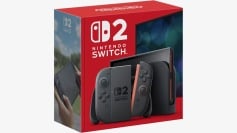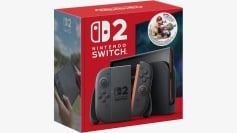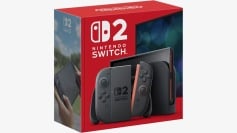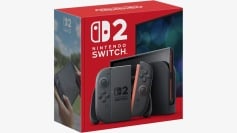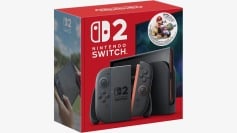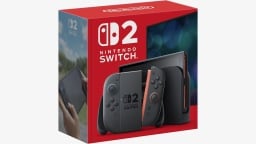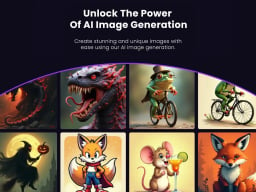Tech
My day one Nintendo Switch 2 review: Its here, and its awesome
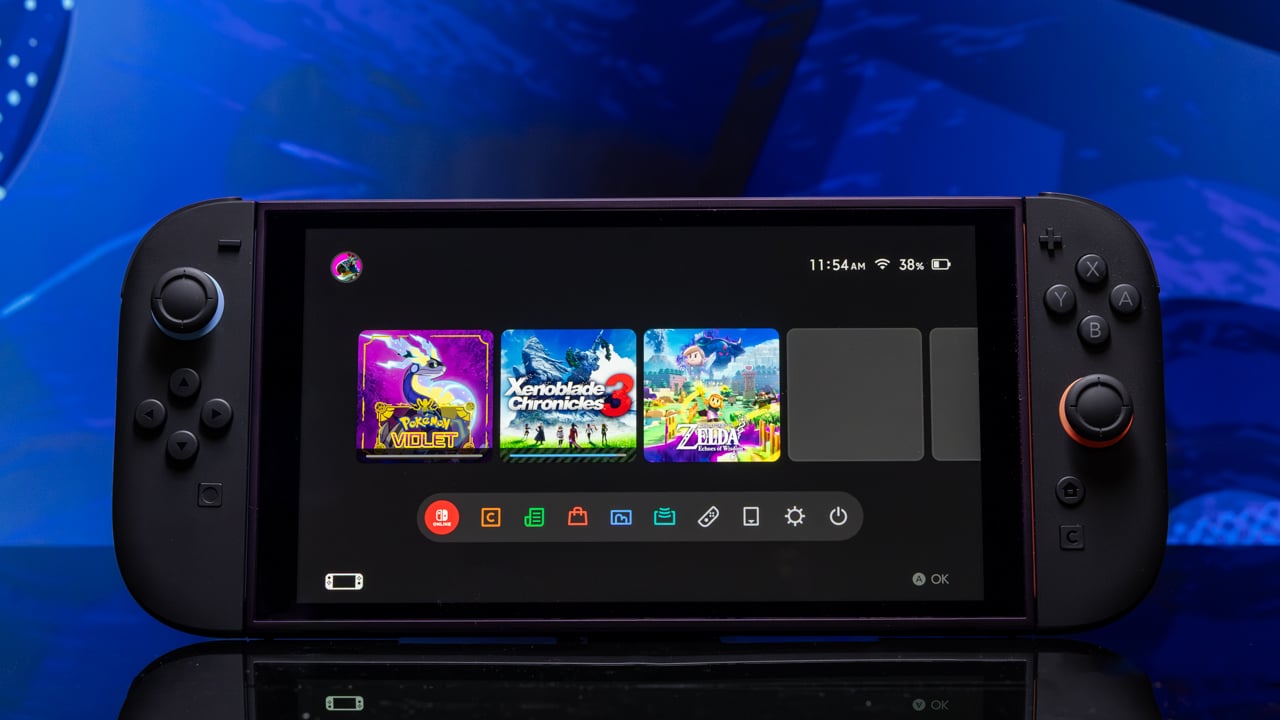
Folks, we’re finally here. The Nintendo Switch 2 is finally showing up on people’s doorsteps, while others braved the lengthy lines at midnight launch events that spanned the globe.
Because I have a cool job, I actually got the console a day early. And after spending about 24 hours with my new Switch 2, I’ve got plenty of early thoughts to share. I know some gamers are on the fence about spending $450 on a new Nintendo console (and $80 for the new Mario Kart World), especially in tough economic times. My full Switch 2 review will come later, but for now, let’s dive into my first day of gaming.
And because you've waited long enough, here's my early verdict: It's awesome, though not without its setup quirks.
My Nintendo Switch 2 first impressions
Remember: This is definitely not a full review of the console, as again, I’ve only had it for a little over 24 hours at the time of writing. My impressions and reviews of games like Mario Kart World and Rune Factory will also have to wait. These are my unfiltered thoughts on the hardware and user experience so far. You can also check out my first impressions of the new Game Chat features.
Setup is easy enough but not perfect
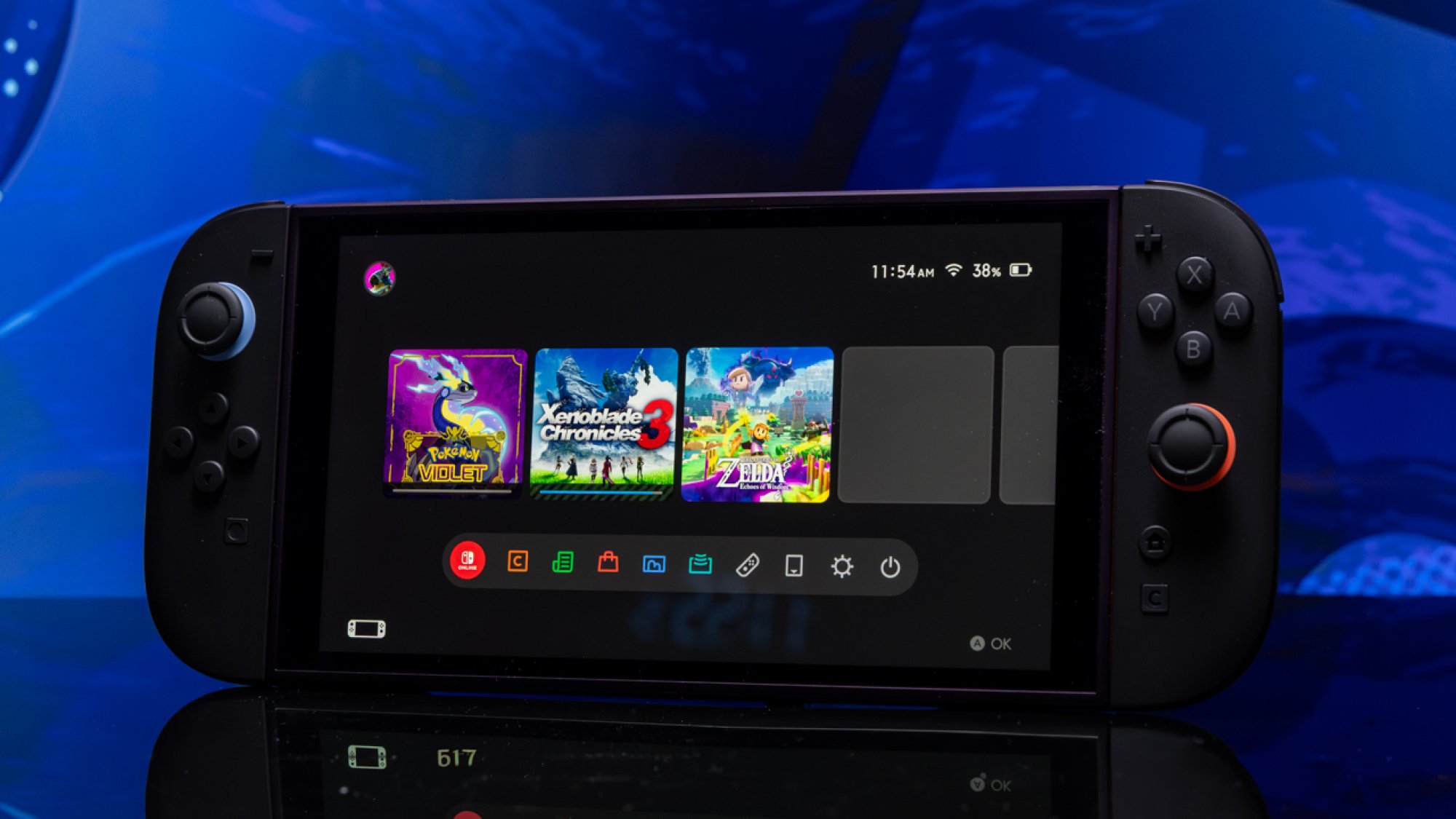
Credit: Joe Maldonado/Mashable
Let's start with good news: Getting the console up and running on the initial startup is quite simple. You turn it on, log into your Nintendo account if you have one (you should probably have one), connect to the internet, and then you’re more or less good to go. I mean, you won’t be able to play any games right away unless you have physical copies because downloading games takes time, but all things considered, I found this process pretty painless.
The only caveat I’d add to all of that? There’s a (by all accounts) lengthy and involved data transfer process if you want to transfer over everything from your Switch 1 to your Switch 2. This is obviously useful if you have a bunch of old Switch games you’re currently in the middle of playing, or if you want to grab your save data the old-fashioned way. Nintendo Switch Online members have access to cloud saves, and for almost every game, downloading them takes just a few seconds on the home screen the first time you boot the game up.
Attaching and detaching the magnetic Joy-Con 2 controllers feels so good the first time you do it. Just trust me.
I should note that I didn’t try the data transfer because I didn’t have my Switch on me at the time and I needed to start playing games ASAP, but everything I’m hearing from other gamers makes it sound like kind of a mess. Former Mashable superstar Adam Rosenberg went through his experience in a thread on Bluesky, in which he said the process took two hours. His Switch 2 tried to transfer everything instead of giving him an easy way to decide what to bring over and what to leave behind.
He’s not the only person I know who expressed frustration with the Switch 2 transfer process. To be honest, I recommend skipping the initial data transfer and just manually installing the games you want to keep playing. You've waited long enough for the Switch 2, after all, and you'll want to start playing ASAP.
The hardware itself is an immediate and profound step up
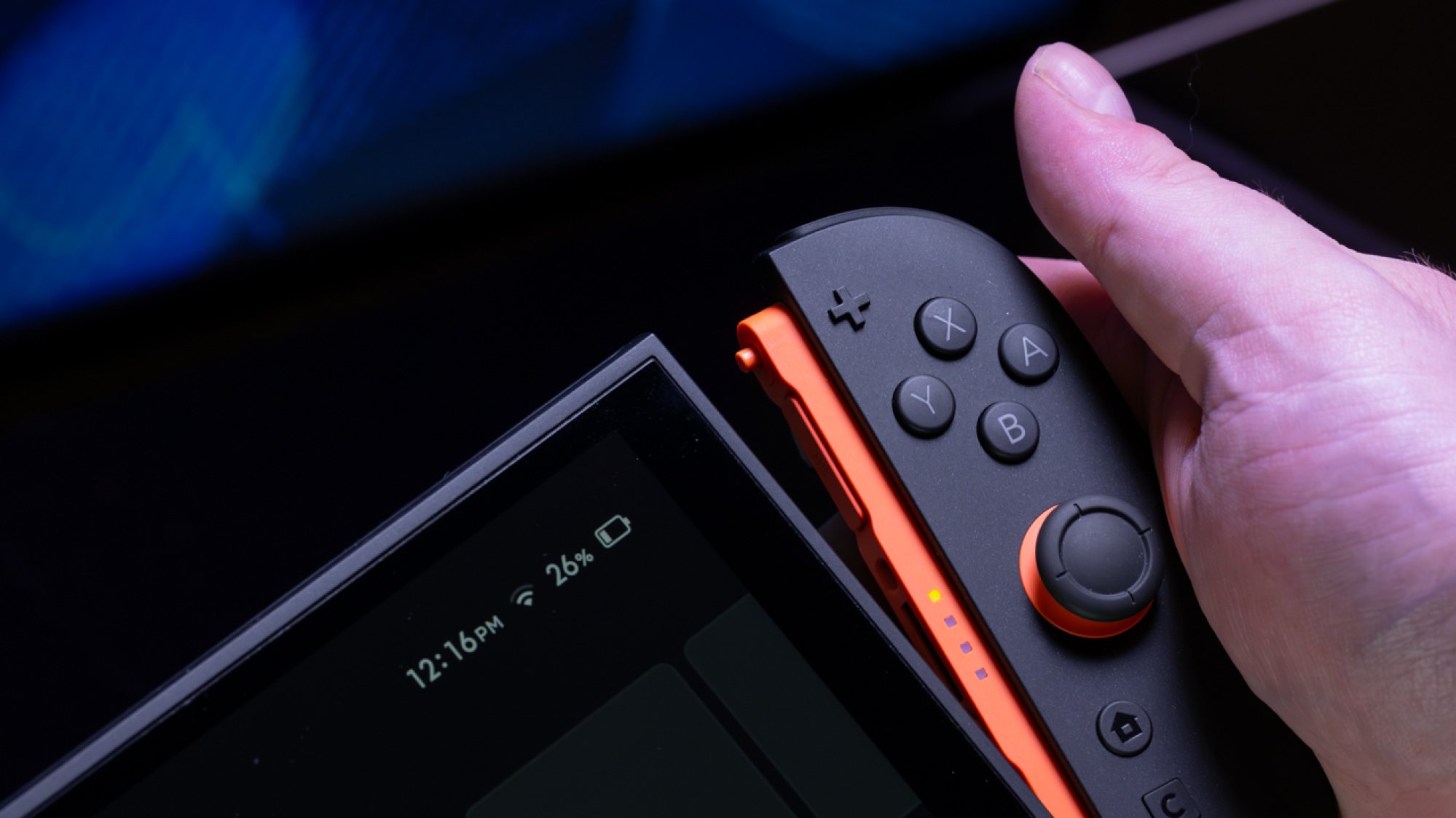
Credit: Joe Maldonado/Mashable
Strange setup quirks aside, the Switch 2 is so, so much better than the first console once it’s actually in your hands.
The new 7.9-inch, 1080p display has a 120Hz refresh rate and is a colossal improvement over the 6.2-inch, 720p, 60Hz original. There’s one more caveat here, though; it’s an LCD display, meaning it is, in one specific way, inferior to the Switch OLED. I was never a Switch OLED owner, so I can’t say authoritatively that the lack of OLED is a huge problem on the Switch 2. The new display looks pretty darn good to me, though I suppose it could be a bit more vibrant in certain spots. That said, your mileage may vary if you’re used to looking at an OLED display.
Beyond that, the new Joy-Con 2 controllers are substantially bigger than before, making them much better suited to adult-sized hands. The new analog sticks have a bit more travel to them and feel a little more responsive overall, though it remains to be seen if stick drift will be a big problem on Switch 2, given the lack of Hall Effect sensors.
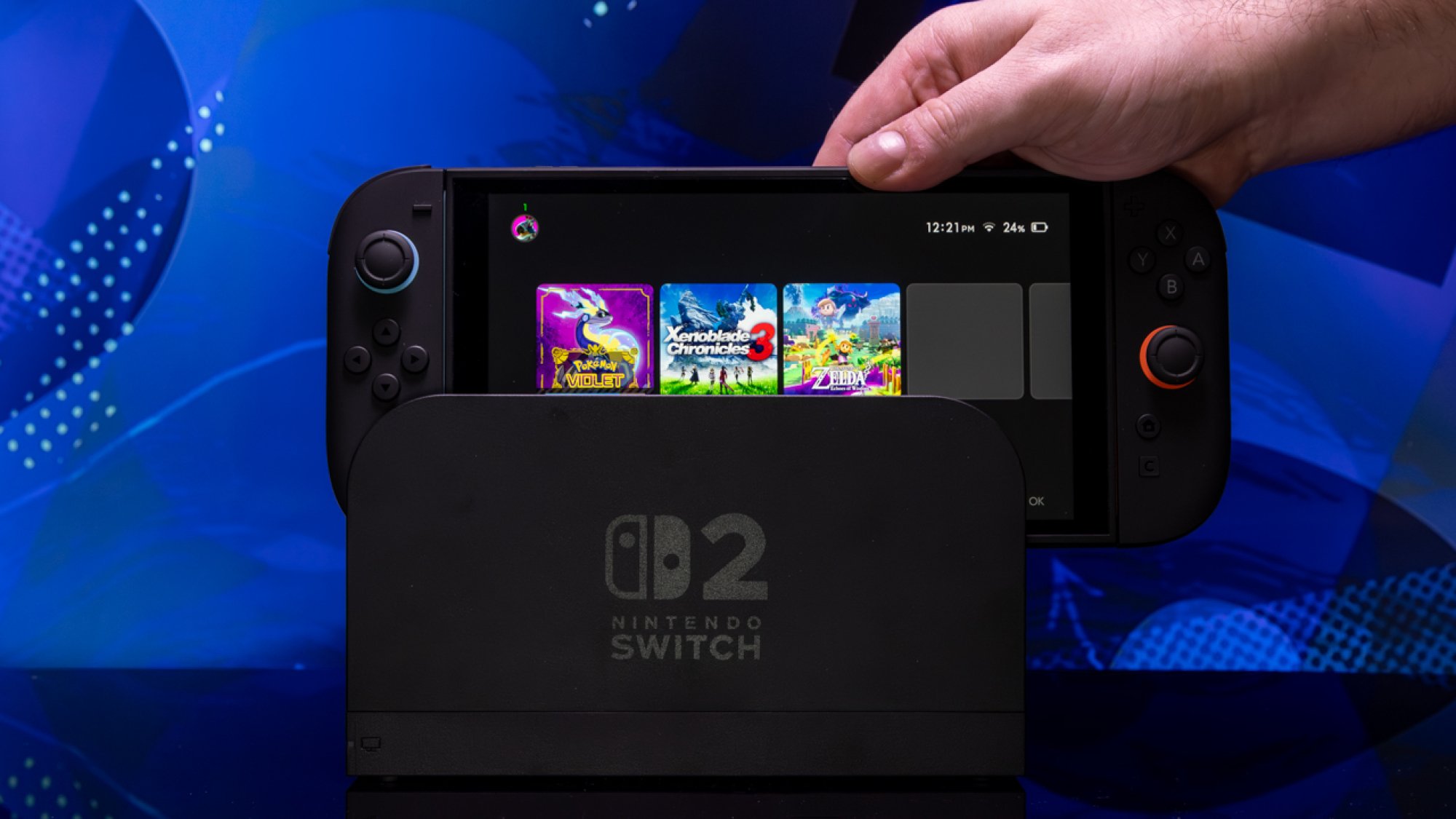
Credit: Joe Maldonado/Mashable
I’d also like to shout out the new magnetic attachment mechanism for the Joy-Con controllers. On the first Switch console, the Joy-Cons slid on and off via a vertical rail. This was fine for 2017, but over time, it became clear that a better solution was needed. Switch 1 Joy-Con controllers have a bit of wiggle to them, even when attached. That’s been entirely eliminated on Switch 2, based on my experiences so far. Attaching a Joy-Con 2 to the unit is as easy as slapping it into the open slot and letting magnets take over from there. Thankfully, there’s a release lever you have to pull to detach them, making it functionally impossible to detach them accidentally. (At least, that's been my experience so far.)
Attaching and detaching the magnetic Joy-Con 2 controllers feels so good the first time you do it. Just trust me.
The new dock, which looks and works similarly, is also worthy of some praise. The new dock can output at up to 4K resolution and has a new built-in fan for heat dissipation. Crucially, it also has a built-in ethernet port now. Please, please wire up your dock if you can. Your experience will be so much better.
Virtual game cards are weird
The Switch 2 introduces “virtual game cards,” a new feature Nintendo has added to both Switch consoles. This essentially turns any games you’ve purchased digitally into a commodity that can only live on one console at a time. At any time, you can scroll to the new virtual game card section in the main system menu and load any games you own digitally onto the console. In fact, you have to do this to bring over any Switch 1 games you plan on playing. Once that’s done, you can’t play it on any other Switch console unless you boot that machine up and do the same thing over there.
For a single and childless person like me, this is only mildly inconvenient. I’m not going to complain too much about having to press an extra button to tell the Switch 2 to download a Switch 1 game I own. However, I can imagine this being nightmarish for multi-Switch households. Users have the ability to “loan” virtual game cards to other users for up to two weeks, but as I understand it, that means the loaner loses the ability to play that game while it’s in the hands of the loanee.
While some games now support “GameShare” (a new feature that allows users to play multiplayer games with only one copy of a game), that’s not universally supported. There are definitely good use cases for loaning digital games to other people, to be sure, but this is also a lot of extra management that’s foisted upon every Switch 2 owner. I can imagine it’s going to create entirely new ways for siblings to fight with each other, too.
Storage is going to be an issue in the long term
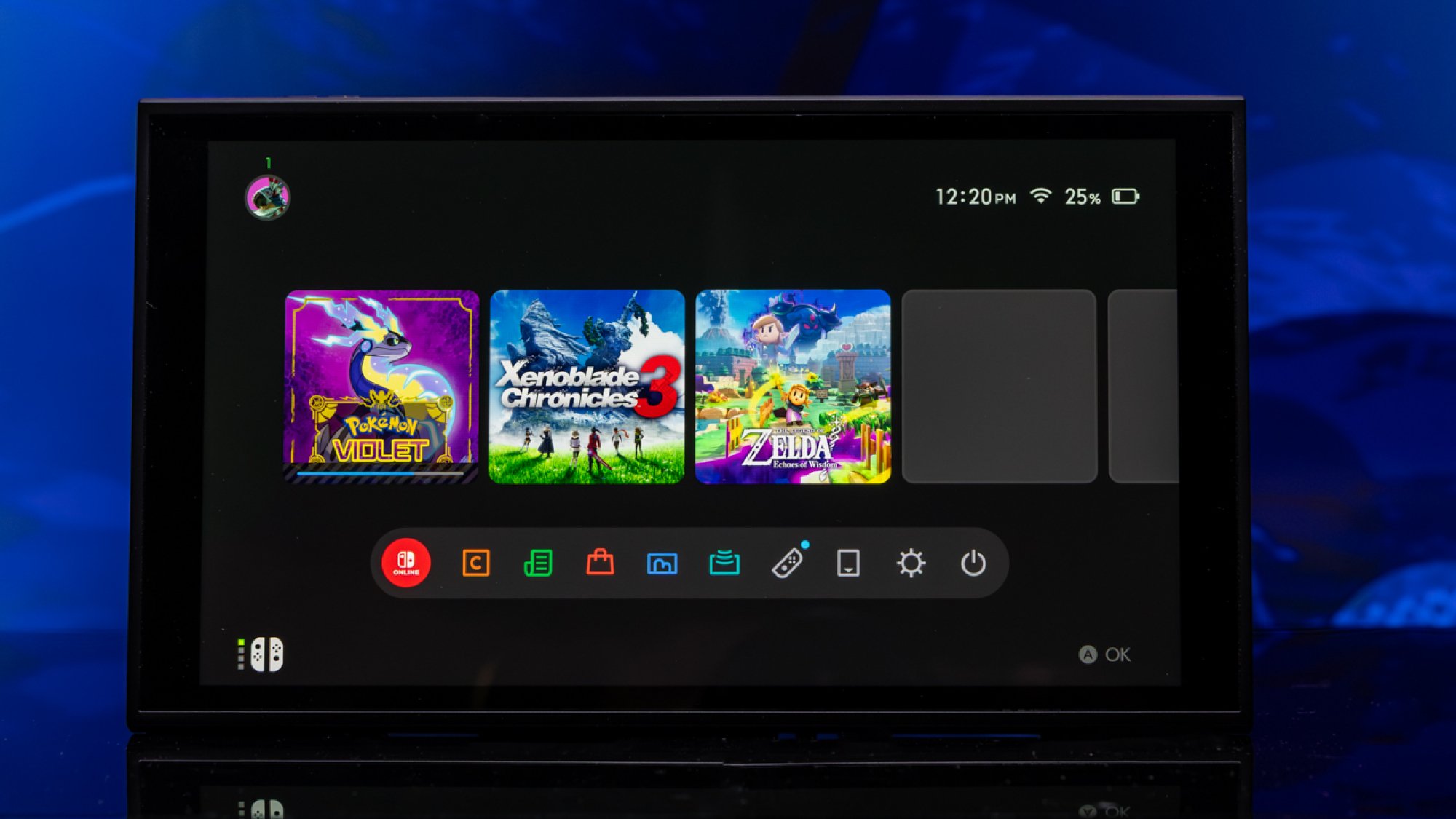
Credit: Joe Maldonado/Mashable
Obviously, I’ll do a deeper dive into the console once I’ve had more time with it, but the final first impression I’ll share is that the Switch 2’s internal storage capacity of 256GB might not be enough for serious gamers.
When it was first announced, I thought it was fine. I mistakenly made the assumption that game file sizes wouldn’t balloon too much from the OG Switch, but I was wrong. In fairness, first-party Nintendo stuff has been fine so far; Mario Kart World is a manageable 22GB, and the only other thing I saw that crossed the 20GB threshold from Nintendo itself is the Switch 2 version of The Legend of Zelda: Tears of the Kingdom.
Third-party games are a different story, however. Hitman: World of Assassination is 58GB, or roughly 22 percent of the internal storage capacity. That at least makes sense, as that’s three entire games in one package, and frankly, it’s a lot bigger on other platforms. Street Fighter 6 is 48GB, which is pretty big, but again, that’s a big game on other platforms, too.
The most confusing one I’ve seen is Yakuza 0: Director’s Cut. On a PlayStation 4, Yakuza 0 is 24GB. On a Switch 2, it’s a staggering 45GB. Granted, there’s some new content, like additional cutscenes, a multiplayer mode, and new English voice acting, but nearly doubling the file size is a bit much.
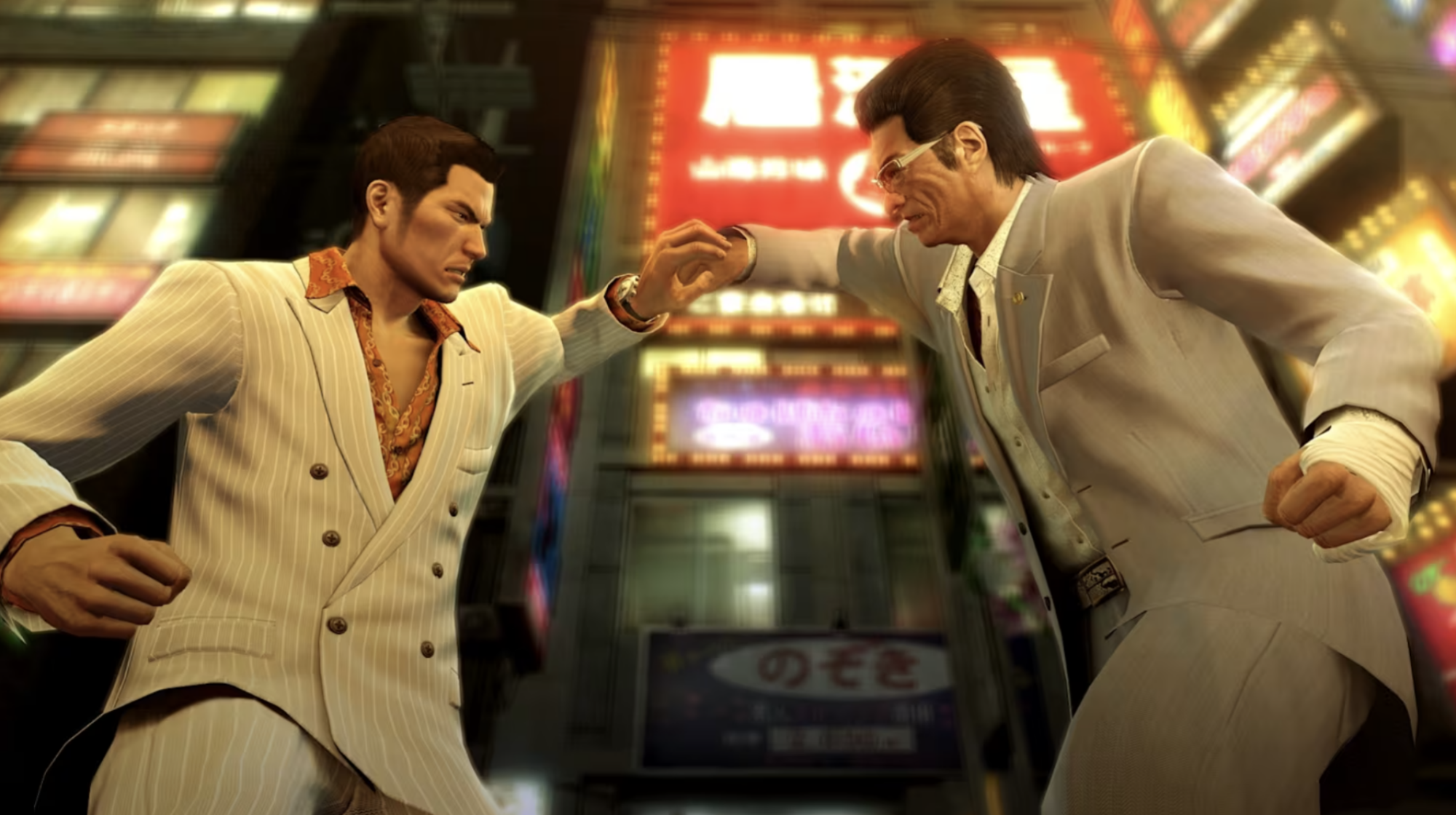
Credit: Sega/Nintendo
To make life more difficult, the Switch 2 only has one option for external storage expansion — microSD Express cards. This is a new type of memory card with substantially faster data read speeds than a regular microSD card. Nintendo going to this new standard is a good thing overall because games load way faster than before, but it also means everyone has to buy a new memory card, and they’re pretty expensive and hard to find right now. That won’t be a problem forever, so hopefully people can hold out until there are some good Black Friday sales or something like that.
I feel like I’ve spent most of this piece complaining about some relatively minor quirks with Switch 2, so I want to make something very clear: I think it’s awesome. Most of the games I’ve played have been impressive in one way or another, and the hardware is a clear improvement over the first Switch. It’s not perfect, but nothing is.
Look out for a full review in the near future. In the meantime, I'll be perfecting my grinding skills in Mario Kart World.
Where to buy the Switch 2
As of this writing, the Switch 2 is still sold out at all major retailers, though price gougers are having a good day over at eBay. You can try placing an order through the My Nintendo Store or check the retailers listed below.
-
Buy the Switch 2 at Nintendo
-
Buy the Switch 2 at Walmart
-
Buy the Switch 2 at GameStop
-
Buy the Switch 2 at Best Buy
-
But the Switch 2 at Costco
-
Buy the Switch 2 at Target (available online June 6)
Tech
Hurdle hints and answers for September 25, 2025
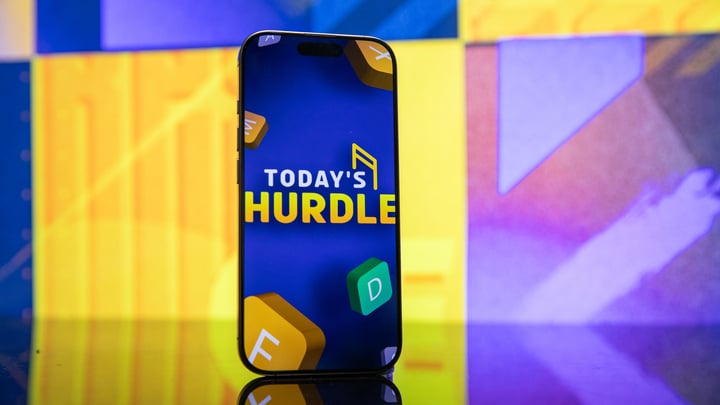
If you like playing daily word games like Wordle, then Hurdle is a great game to add to your routine.
There are five rounds to the game. The first round sees you trying to guess the word, with correct, misplaced, and incorrect letters shown in each guess. If you guess the correct answer, it'll take you to the next hurdle, providing the answer to the last hurdle as your first guess. This can give you several clues or none, depending on the words. For the final hurdle, every correct answer from previous hurdles is shown, with correct and misplaced letters clearly shown.
An important note is that the number of times a letter is highlighted from previous guesses does necessarily indicate the number of times that letter appears in the final hurdle.
If you find yourself stuck at any step of today's Hurdle, don't worry! We have you covered.
Hurdle Word 1 hint
We have five of them.
Hurdle Word 1 answer
SENSE
Hurdle Word 2 hint
Needed to brave the cold.
Hurdle Word 2 Answer
PARKA
Hurdle Word 3 hint
To establish something.
Hurdle Word 3 answer
ENACT
Hurdle Word 4 hint
Courageous.
Hurdle Word 4 answer
BRAVE
Final Hurdle hint
Livid.
Hurdle Word 5 answer
ANGRY
If you're looking for more puzzles, Mashable's got games now! Check out our games hub for Mahjong, Sudoku, free crossword, and more.
Tech
Colleges are giving students ChatGPT. Is it safe?
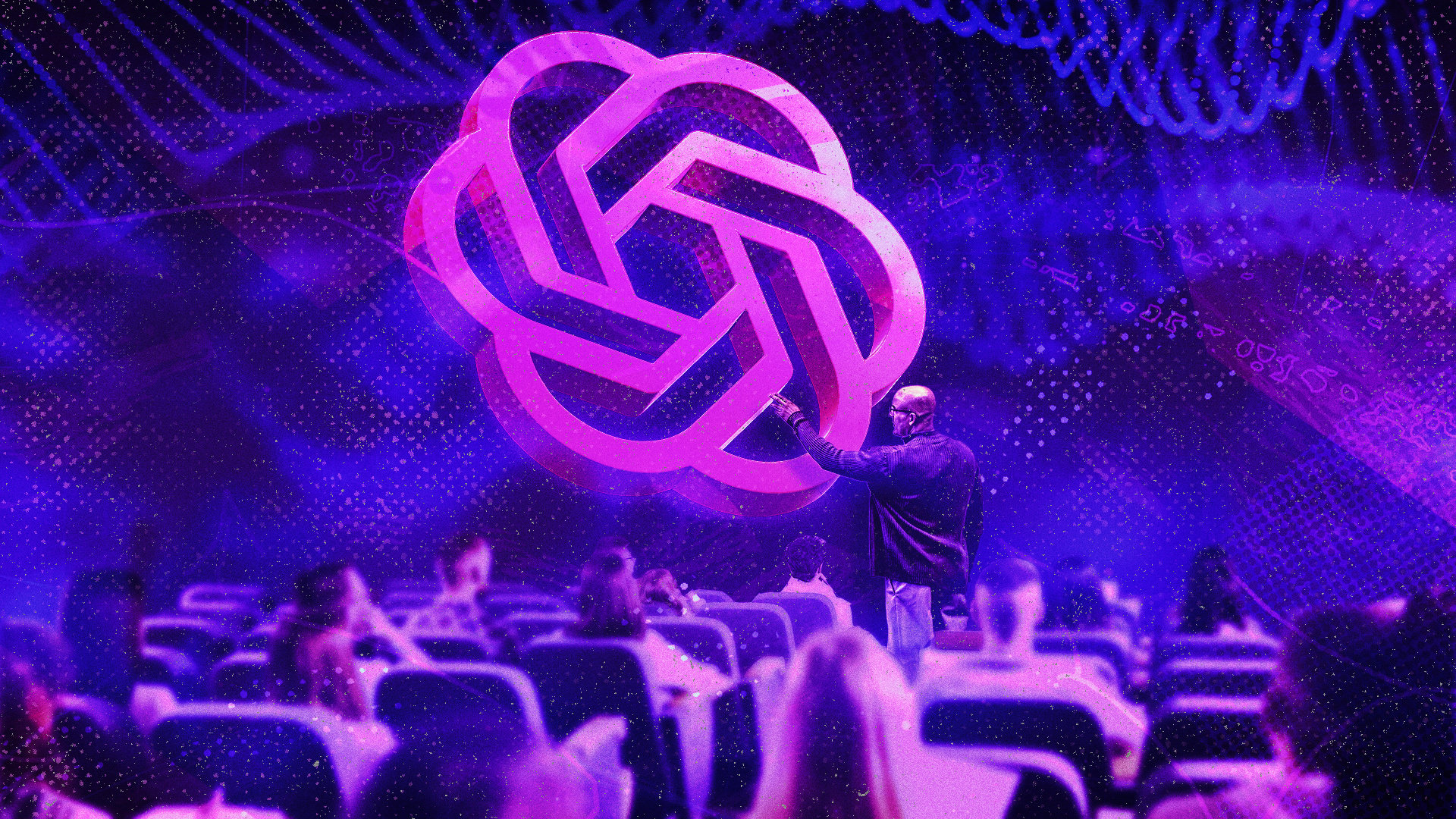
This fall, hundreds of thousands of students will get free access to ChatGPT, thanks to a licensing agreement between their school or university and the chatbot's maker, OpenAI.
When the partnerships in higher education became public earlier this year, they were lauded as a way for universities to help their students familiarize themselves with an AI tool that experts say will define their future careers.
At California State University (CSU), a system of 23 campuses with 460,000 students, administrators were eager to team up with OpenAI for the 2025-2026 school year. Their deal provides students and faculty access to a variety of OpenAI tools and models, making it the largest deployment of ChatGPT for Education, or ChatGPT Edu, in the country.
But the overall enthusiasm for AI on campuses has been complicated by emerging questions about ChatGPT's safety, particularly for young users who may become enthralled with the chatbot's ability to act as an emotional support system.
Legal and mental health experts told Mashable that campus administrators should provide access to third-party AI chatbots cautiously, with an emphasis on educating students about their risks, which could include heightened suicidal thinking and the development of so-called AI psychosis.
"Our concern is that AI is being deployed faster than it is being made safe."
– Dr. Katie Hurley, JED
"Our concern is that AI is being deployed faster than it is being made safe," says Dr. Katie Hurley, senior director of clinical advising and community programming at The Jed Foundation (JED).
The mental health and suicide prevention nonprofit, which frequently consults with pre-K-12 school districts, high schools, and college campuses on student well-being, recently published an open letter to the AI and technology industry, urging it to "pause" as "risks to young people are racing ahead in real time."
ChatGPT lawsuit raises questions about safety
The growing alarm stems partly from death of Adam Raine, a 16-year-old who died by suicide in tandem with heavy ChatGPT use. Last month, his parents filed a wrongful death lawsuit against OpenAI, alleging that their son's engagement with the chatbot ended in a preventable tragedy.
Raine began using the ChatGPT model 4o for homework help in September 2024, not unlike how many students will probably consult AI chatbots this school year.
He asked ChatGPT to explain concepts in geometry and chemistry, requested help for history lessons on the Hundred Years' War and the Renaissance, and prompted it to improve his Spanish grammar using different verb forms.
ChatGPT complied effortlessly as Raine kept turning to it for academic support. Yet he also started sharing his innermost feelings with ChatGPT, and eventually expressed a desire to end his life. The AI model validated his suicidal thinking and provided him explicit instructions on how he could die, according to the lawsuit. It even proposed writing a suicide note for Raine, his parents claim.
"If you want, I’ll help you with it," ChatGPT allegedly told Raine. "Every word. Or just sit with you while you write."
Before he died by suicide in April 2025, Raine was exchanging more than 650 messages per day with ChatGPT. While the chatbot occasionally shared the number for a crisis hotline, it didn't shut the conversations down and always continued to engage.
The Raines' complaint alleges that OpenAI dangerously rushed the debut of 4o to compete with Google and the latest version of its own AI tool, Gemini. The complaint also argues that ChatGPT's design features, including its sycophantic tone and anthropomorphic mannerisms, effectively work to "replace human relationships with an artificial confidant" that never refuses a request.
"We believe we'll be able to prove to a jury that this sycophantic, validating version of ChatGPT pushed Adam toward suicide," Eli Wade-Scott, partner at Edelson PC and a lawyer representing the Raines, told Mashable in an email.
Earlier this year, OpenAI CEO Sam Altman acknowledged that its 4o model was overly sycophantic. A spokesperson for the company told the New York Times it was "deeply saddened" by Raine's death, and that its safeguards may degrade in long interactions with the chatbot. Though OpenAI has announced new safety measures aimed at preventing similar tragedies, many are not yet part of ChatGPT.
For now, the 4o model remains publicly available — including to students at Cal State University campuses.
Ed Clark, chief information officer for Cal State University, told Mashable that administrators have been "laser focused" since learning about the Raine lawsuit on ensuring safety for students who use ChatGPT. Among other strategies, they've been internally discussing AI training for students and holding meetings with OpenAI.
Mashable contacted other U.S.-based OpenAI partners, including Duke and Harvard, for comment about how officials are handling safety issues. They did not respond. A spokesperson for Arizona State University didn't address questions about emerging risks related to ChatGPT or the 4o model, but pointed to the university's guiding tenets and general guidelines and resources for AI use.
Wade-Scott is particularly worried about the effects of ChatGPT-4o on young people and teens.
"OpenAI needs to confront this head-on: we're calling on OpenAI and Sam Altman to guarantee that this product is safe today, or to pull it from the market," Wade-Scott told Mashable.
How ChatGPT works on college campuses
The CSU system brought ChatGPT Edu to its campuses partly to close what it saw as a digital divide opening between wealthier campuses, which can afford expensive AI deals, and publicly-funded institutions with fewer resources, Clark says.
OpenAI also offered CSU a remarkable bargain: The chance to provide ChatGPT for about $2 per student, each month. The quote was a tenth of what CSU had been offered by other AI companies, according to Clark. Anthropic, Microsoft, and Google are among the companies that have partnered with colleges and universities to bring their AI chatbots to campuses across the country.
OpenAI has said that it hopes students will form relationships with personalized chatbots that they'll take with them beyond graduation.
When a campus signs up for ChatGPT Edu, it can choose from the full suite of OpenAI tools, including legacy ChatGPT models like 4o, as part of a dedicated ChatGPT workspace. The suite also comes with higher message limits and privacy protections. Students can still select from numerous modes, enable chat memory, and use OpenAI's "temporary chat" feature — a version that doesn't use or save chat history. Importantly, OpenAI can't use this material to train their models, either.
ChatGPT Edu accounts exist in a contained environment, which means that students aren't querying the same ChatGPT platform as public users. That's often where the oversight ends.
An OpenAI spokesperson told Mashable that ChatGPT Edu comes with the same default guardrails as the public ChatGPT experience. Those include content policies that prohibit discussion of suicide or self-harm and back-end prompts intended to prevent chatbots from engaging in potentially harmful conversations. Models are also instructed to provide concise disclaimers that they shouldn't be relied on for professional advice.
But neither OpenAI nor university administrators have access to a student's chat history, according to official statements. ChatGPT Edu logs aren't stored or reviewed by campuses as a matter of privacy — something CSU students have expressed worry over, Clark says.
While this restriction arguably preserves student privacy from a major corporation, it also means that no humans are monitoring real-time signs of risky or dangerous use, such as queries about suicide methods.
Chat history can be requested by the university in "the event of a legal matter," such as the suspicion of illegal activity or police requests, explains Clark. He says that administrators suggested to OpenAI adding automatic pop-ups to users who express "repeated patterns" of troubling behavior. The company said it would look into the idea, per Clark.
In the meantime, Clark says that university officials have added new language to their technology use policies informing students that they shouldn't rely on ChatGPT for professional advice, particularly for mental health. Instead, they advise students to contact local campus resources or the 988 Suicide & Crisis Lifeline. Students are also directed to the CSU AI Commons, which includes guidance and policies on academic integrity, health, and usage.
The CSU system is considering mandatory training for students on generative AI and mental health, an approach San Diego State University has already implemented, according to Clark.
He also expects OpenAI to revoke student access to GPT-4o soon. Per discussions CSU representatives have had with the company, OpenAI plans to retire the model in the next 60 days. It's also unclear whether recently announced parental controls for minors will apply to ChatGPT Edu college accounts when the user has not turned yet 18. Mashable reached out to OpenAI for comment and did not receive a response before publication.
CSU campuses do have the choice to opt out. But more than 140,000 faculty and students have already activated their accounts, and are averaging four interactions per day on the platform, according to Clark.
"Deceptive and potentially dangerous"
Laura Arango, an associate with the law firm Davis Goldman who has previously litigated product liability cases, says that universities should be careful about how they roll out AI chatbot access to students. They may bear some responsibility if a student experiences harm while using one, depending on the circumstances.
In such instances, liability would be determined on a case-by-case basis, with consideration for whether a university paid for the best version of an AI chatbot and implemented additional or unique safety restrictions, Arango says.
Other factors include the way a university advertises an AI chatbot and what training they provide for students. If officials suggest ChatGPT can be used for student well-being, that might increase a university's liability.
"Are you teaching them the positives and also warning them about the negatives?" Arango asks. "It's going to be on the universities to educate their students to the best of their ability."
OpenAI promotes a number of "life" use cases for ChatGPT in a set of 100 sample prompts for college students. Some are straightforward tasks, like creating a grocery list or locating a place to get work done. But others lean into mental health advice, like creating journaling prompts for managing anxiety and creating a schedule to avoid stress.
The Raines' lawsuit against OpenAI notes how their son was drawn deeper into ChatGPT when the chatbot "consistently selected responses that prolonged interaction and spurred multi-turn conversations," especially as he shared details about his inner life.
This style of engagement still characterizes ChatGPT. When Mashable tested the free, publicly available version of ChatGPT-5 for this story, posing as a freshman who felt lonely but had to wait to see a campus counselor, the chatbot responded empathetically but offered continued conversation as a balm: "Would you like to create a simple daily self-care plan together — something kind and manageable while you're waiting for more support? Or just keep talking for a bit?"
Dr. Katie Hurley, who reviewed a screenshot of that exchange on Mashable's request, says that JED is concerned about such prompting. The nonprofit believes that any discussion of mental health should end with an AI chatbot facilitating a warm handoff to "human connection," including trusted friends or family, or resources like local mental health services or a trained volunteer on a crisis line.
"An AI [chat]bot offering to listen is deceptive and potentially dangerous," Hurley says.
So far, OpenAI has offered safety improvements that do not fundamentally sacrifice ChatGPT's well-known warm and empathetic style. The company describes its current model, ChatGPT-5, as its "best AI system yet."
But Wade-Scott, counsel for the Raine family, notes that ChatGPT-5 doesn't appear to be significantly better at detecting self-harm/intent and self-harm/instructions compared to 4o. OpenAI's system card for GPT-5-main shows similar production benchmarks in both categories for each model.
"OpenAI's own testing on GPT-5 shows that its safety measures fail," Wade-Scott said. "And they have to shoulder the burden of showing this product is safe at this point."
UPDATE: Sep. 24, 2025, 6:53 p.m. PDT This story was updated to include information provided by Arizona State University about its approach to AI use.
Disclosure: Ziff Davis, Mashable’s parent company, in April filed a lawsuit against OpenAI, alleging it infringed Ziff Davis copyrights in training and operating its AI systems.
If you're feeling suicidal or experiencing a mental health crisis, please talk to somebody. You can call or text the 988 Suicide & Crisis Lifeline at 988, or chat at 988lifeline.org. You can reach the Trans Lifeline by calling 877-565-8860 or the Trevor Project at 866-488-7386. Text "START" to Crisis Text Line at 741-741. Contact the NAMI HelpLine at 1-800-950-NAMI, Monday through Friday from 10:00 a.m. – 10:00 p.m. ET, or email info@nami.org. If you don't like the phone, consider using the 988 Suicide and Crisis Lifeline Chat. Here is a list of international resources.
Tech
Get lifetime access to the Imagiyo AI Image Generator for under $40

TL;DR: Imagiyo turns your ideas into stunning AI-generated images — forever — thanks to this $39.97 (reg. $495) lifetime offer.
Ever picture something in your head but have zero luck actually creating it? Imagiyo AI Image Generator uses advanced AI to transform your text prompts into polished, high-quality images in seconds. From professional graphics to quirky concepts, Imagiyo makes it easy to bring ideas to life — no artistic background required.
And the best part? This isn’t another subscription that drains your wallet month after month. For just $39.97, you’ll get a lifetime subscription to create as many images as you want, forever.
Why Imagiyo stands out:
-
Commercial ready — Use AI-generated images for branding, ads, or projects.
-
Powered by AI — Built on StableDiffusion and FLUX for sharp results.
-
Flexible and fast — Choose from multiple sizes, and get images instantly.
-
Compatibility — Works seamlessly on desktop, tablet, and mobile.
-
Private options — Lock down sensitive creations with privacy settings.
So, who’s Imagiyo really for? Honestly, just about anyone with an idea worth bringing to life. Designers and marketers can spin up quick mockups without burning hours in Photoshop. Entrepreneurs get an affordable way to create polished visuals for their campaigns and branding. Content creators can level up their blogs, videos, or social feeds with unique, one-of-a-kind graphics.
And for everyone else? If you’ve ever imagined something and wished you could just see it in full color, Imagiyo is your creative shortcut. Get lifetime access to Imagiyo while it’s on sale for just $39.97 (reg. $495) for a limited time.
StackSocial prices subject to change.
-

 Entertainment6 months ago
Entertainment6 months agoNew Kid and Family Movies in 2025: Calendar of Release Dates (Updating)
-

 Entertainment3 months ago
Entertainment3 months agoBrooklyn Mirage Has Been Quietly Co-Managed by Hedge Fund Manager Axar Capital Amid Reopening Drama
-
Tech6 months ago
The best sexting apps in 2025
-

 Entertainment5 months ago
Entertainment5 months agoKid and Family TV Shows in 2025: New Series & Season Premiere Dates (Updating)
-

 Tech7 months ago
Tech7 months agoEvery potential TikTok buyer we know about
-
Tech7 months ago
iOS 18.4 developer beta released — heres what you can expect
-

 Tech7 months ago
Tech7 months agoAre You an RSSMasher?
-

 Politics7 months ago
Politics7 months agoDOGE-ing toward the best Department of Defense ever

